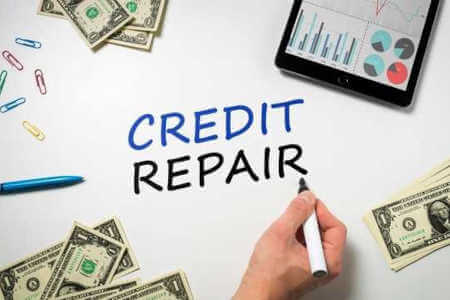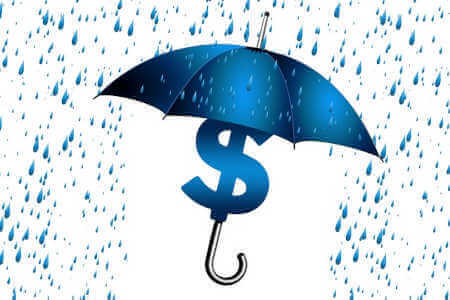How Does Chapter 13 Bankruptcy Affect Your Credit?
Effective October 2005, Congress made sweeping changes to the bankruptcy laws. The net effect of these changes is to give consumers more incentive to seek bankruptcy relief under Chapter 13 rather than Chapter 7. Chapter 13 allows you, if you have a steady income, to keep property, such as a mortgaged house or car, that you might otherwise lose. In Chapter 13, the court approves a repayment plan that allows you to use your future income to repay your creditors all or part of the money that you owe them within 3 years or 5 years, depending on your income and other factors, rather than surrender any property. After you have made all the payments under the plan, you receive a discharge of your debts.
A Chapter 13 bankruptcy is designed to give individuals with a consistent income a court-ordered repayment plan. When a Chapter 13 is filed, the individual (called a debtor in this case) works with a trustee to repay creditors on a schedule over a three to five-year period. When the payment plan is completed, any remaining eligible debts are discharged.
Chapter 13 bankruptcy does not get rid of:

One of the great advantages of chapter 13 is that it gives the debtors an opportunity to save their homes from foreclosure by allowing them to "catch up" by making past due payments through a payment plan. After you make all the payments under your Chapter 13 plan, many of your debts will be discharged. The debts that will not be discharged and that you may still be responsible to pay include:
Certain taxes
Student loan obligations
Child support payments
Alimony payments
Fines, penalties, forfeitures, and criminal restitution obligations
Debts for fraud or theft
Most criminal fines and restitution obligations
Certain debts that are not listed in your bankruptcy papers
Effects of Chapter 13 Bankruptcy on your Credit Score
Chapter 13 bankruptcy or any bankruptcy for that matter is considered a very negative event and will have a devastating effect on your credit score. A Chapter 13 bankruptcy filing is noted from the public records and will remain on your credit reports and affect your credit scores for 7 years from the filing date.
Chapter 13 bankruptcy Scenario #1
Current Scenario:
Filed Bankruptcy Chapter 13 and not yet received discharge.
You have made at least 2 years of payment under Chapter 13 plan.
YES NO
Chapter 7 Chapter 13
YES NO, I have got the discharge
YES NO
Keep making on-time payments on debts not under bankruptcy.
Make sure there is no late payment on your mortgage under Chapter 13 plan.
File reaffirmation with the court and start paying some of the debts included in bankruptcy.
You need to take court permission to get new credit. Get a secured card and make sure the card provider reports payment history to the Credit Reporting Agencies.
Be an authorized user on someone else's credit card. The account history will be shown on your credit report.
Get a small personal loan and make on-time payments.
Determine your equity and then seek court approval. Only then can you take out a mortgage. The lender will check out the bankruptcy papers prior to offering loan.
What is a derogatory mark on your credit report?
A derogatory mark on your credit report means there is an item on your account that is past due or at credit risk. For example late payments or missed payments that are reported to the credit bureaus by your lender will trigger a derogatory mark on your credit report. Derogatory remarks can significantly and negatively impact your credit score.
Chapter 13 bankruptcy Scenario #2
Current Scenario:
Filed Bankruptcy Chapter 13 and not yet received discharge.
You have made less than 2 years of payment under Chapter 13 plan.
But you have 1 year of payment under Chapter 13 plan.
No such derogatory item has been recorded in this 1 year of payment.
Keep making on-time payments on debts not under bankruptcy.
Make sure there is no late payment on your mortgage under Chapter 13 plan.
File reaffirmation with the court and start paying some of the debts included in bankruptcy.
You need to take court permission to get new credit. Get a secured card and make sure the card provider reports payment history to the Credit Reporting Agencies.
Be an authorized user on someone else's credit card. The account history will be shown on your credit report.
Get a small personal loan and make on-time payments.
You can qualify for FHA loans.
Chapter 13 bankruptcy Scenario #3
Current Scenario:
Filed Bankruptcy Chapter 13 and not yet received discharge.
You have made less than 2 years of payment under Chapter 13 plan.
But you have 1 year of payment under Chapter 13 plan.
There are derogatory items recorded in this 1 year.
Keep making on-time payments on debts not under bankruptcy.
Make sure there is no late payment on your mortgage under Chapter 13 plan.
File reaffirmation with the court and start paying some of the debts included in bankruptcy.
You need to take court permission to get new credit. Get a secured card and make sure the card provider reports payment history to the Credit Reporting Agencies.
Be an authorized user on someone else's credit card. The account history will be shown on your credit report.
Get a small personal loan and make on-time payments.
Wait till 2 years of payments are over. Try to make on-time payments and avoid negative items on your credit report.
Chapter 13 bankruptcy Scenario #4
Current Scenario:
Filed Bankruptcy Chapter 13 and not yet received discharge.
You have made less than 2 years of payment under Chapter 13 plan.
You don't even have 1 year payment history under Chapter 13.
Keep making on-time payments on debts not under bankruptcy.
Make sure there is no late payment on your mortgage under Chapter 13 plan.
File reaffirmation with the court and start paying some of the debts included in bankruptcy.
You need to take court permission to get new credit. Get a secured card and make sure the card provider reports payment history to the Credit Reporting Agencies.
Be an authorized user on someone else's credit card. The account history will be shown on your credit report.
Get a small personal loan and make on-time payments.
Wait till 12 months of payments are over.
Note
A discharged Chapter 13 bankruptcy remains on your credit report 7 years from the date filed.
How long does negative information stay on your credit report?
Warning!
Bankruptcy can have serious long-term financial and legal consequences, including loss of your property. You should consider hiring an attorney and carefully consider all of your options before you file. Only an attorney can give you legal advice about what can happen as a result of filing for bankruptcy and what your options are.



